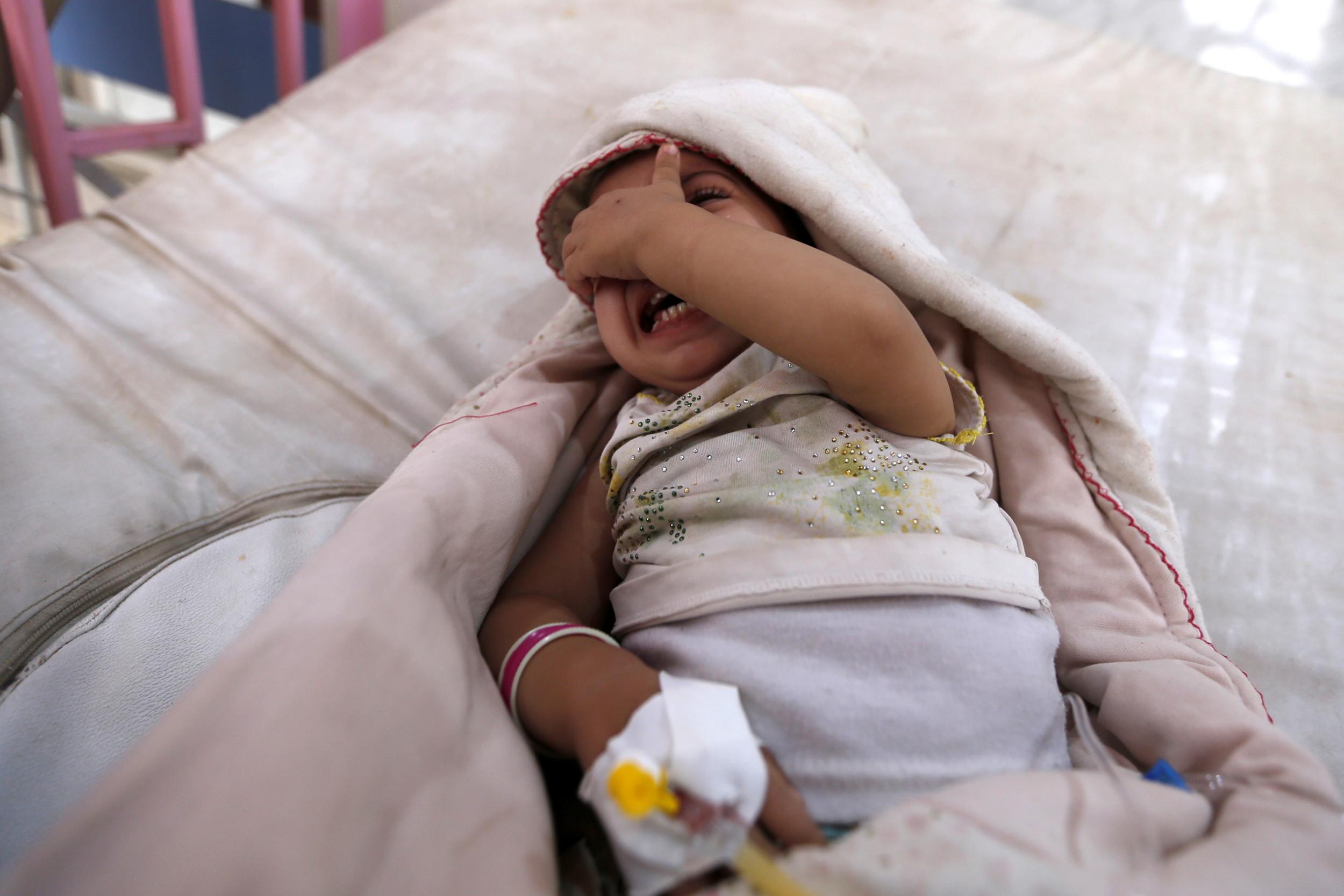Yemen cholera outbreak set to be worst on record
Oxfam says Yemeni crisis - already fastest growing epidemic in modern history - will soon outstrip number of cases recorded in Haiti after 2010 earthquake and will hit one million by November

The cholera outbreak in Yemen is set to become the largest epidemic since records began, British charity Oxfam has said.
Yemen descended into a full-blown civil war in March 2015, and has been suffering from a cholera epidemic since March of this year.
Charities had already warned the crisis is the fasting-growing cholera epidemic in history, and have said the number of cases will soon overtake the total of 754,373 cases recorded in the aftermath of Haiti’s 2010 earthquake. Experts believe it will hit a million by November.

More than 2,100 Yemenis, around half of them children, have died from the disease to date. While in some areas the infection rate has fallen, in the most conflict affected and hard-to-reach provinces up to 5,000 people a day are falling ill.
“Yemen is the world’s worst humanitarian crisis and it is getting even worse. More than two years of war have created ideal conditions for the disease to spread,” Nigel Timmins, Oxfam’s Humanitarian Director, said in a statement.
“The war has pushed the country to the edge of famine, forced millions from their homes, virtually destroyed the already weak health services and hampered efforts to respond to the cholera outbreak.”
Two and a half years of civil war have decimated Yemen’s infrastructure and put seven million of the 27-million strong population on the brink of famine.
The collapse of the medical system has allowed cholera to balloon across the entire country. Aid organisations are struggling to reach people in remote, recently hit areas, and critical medical as well as food supply lines are being strangled by the Saudi-led blockade on Yemen’s airspace and ports.
Less than half of the country’s medical centres are still functional, 14.5 million people don’t have regular access to clean water, and in several provinces health and sanitation workers are still going to work despite not receiving their pay for a year.
While it is easily preventable and treatable in hygienic conditions, cholera can kill the old, young and otherwise sick in hours if fluids are not replaced.
As part of its emergency response, Oxfam has provided water and sanitation assistance to more than 430,000 people in Taiz, Aden, Hajjah, Al-Hudaydah, and Amran governorates, but warned that visas and access for cholera experts have been taking up to two months thanks to both Houthi and government restrictions. The UN said last month that vaccine shipments had also been delayed.
Saudi Arabia and its regional partners have justified an extensive bombing campaign on Yemen’s Shia Houthi rebels, who control the capital Sanaa, at the request of the exiled, internationally recognised Yemeni President Abdrabbuh Mansour Hadi.
The intense air strikes – which in some cases have targeted civilian buildings such as hospitals and funeral gatherings – have killed thousands of civilians.
Western governments including the UK have been heavily criticised for selling weapons export licences to Saudi Arabia, which rights groups say are destined for use in Yemen’s war.

Officials within former US President Barack Obama’s administration worried the sales could amount to complicity in war crimes.
The UN estimates $2.1bn (£1.6bn) is needed to stop Yemen become a completely failed state, but donor governments only pledged half that amount at an aid conference in Geneva in April.
“Yemen’s tragedy is a man-made catastrophe for which all sides bear responsibility. Yet it is being fuelled by deliberate political decisions in London, Washington and other world capitals, Mr Timmins added.
“Billions of dollars worth of arms are being sold with little if any concern for the destruction of lives their use is causing. Our common humanity tells us this has to stop and efforts to foster peace have to start."
An earlier version of this article appeared saying the outbreak had already surpassed the levels seen in Haiti in 2010. Oxfam subsequently retracted the statement, but added the number of cases is forecast to top those seen in Haiti "within ten days".
Join our commenting forum
Join thought-provoking conversations, follow other Independent readers and see their replies
Comments
Bookmark popover
Removed from bookmarks